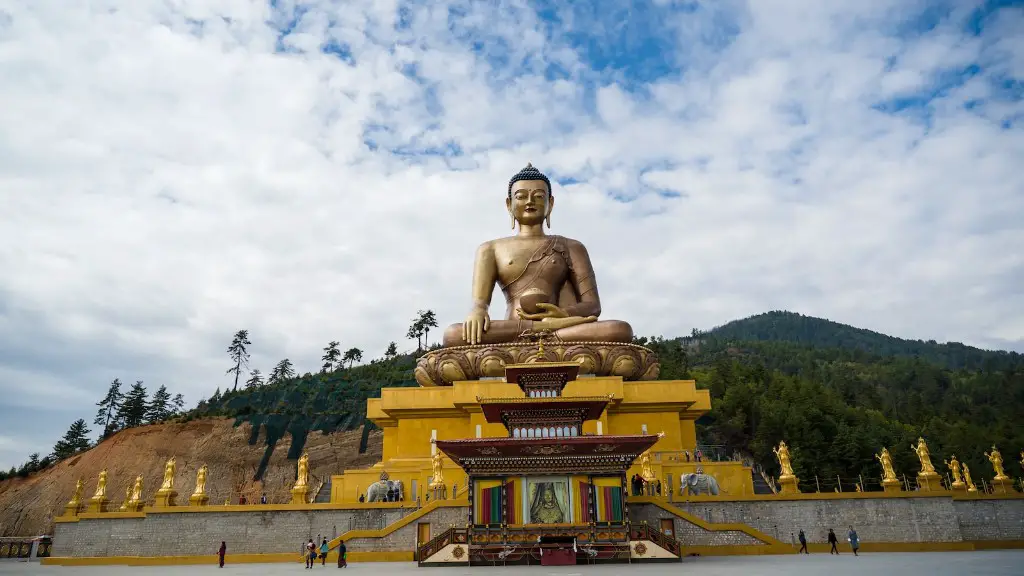Hinduism Beliefs
Hinduism is one of the world’s oldest religions, with more than 1 billion devotees worldwide. Over the centuries, it has evolved from its primitive roots to form the diverse belief systems it is today. The religion consists of various beliefs and rituals, some common to all sects of the religion, and others specific to a certain faith or region. Traditional Hinduism is complex and multi-layered, and can be difficult to understand for those not deeply rooted in its past. For those seeking to understand Hinduism, it is important to be aware of some basic ideas.
The core belief of Hinduism is in the cyclical nature of life, which is governed by dharma, or the principle of spiritual vitality in life. It is through dharma that individuals seek to achieve their God-given potential. Dharma is closely related to karma, which is the law of moral cause and effect. Hindus believe that karma determines one’s future, and that good deeds lead to a good life, while bad deeds lead to suffering. Hindus also believe in reincarnation, the belief that each soul is constantly reborn into new lives.
Hinduism is a polytheistic religion, which means there are many deities worshiped. These deities are seen as manifestations of Brahman, the Supreme Being. Each of the deities has its own domain and responsibilities, but all are understood to be facets of Brahman. Each worshiper can select their preferred deity, or multiple deities, and direct their prayers to them. Ultimately, though, the goal is experience of Brahman the one source of all.
Another fundamental Hindu belief is that of ahimsa, or non-violence. This belief is central to the religion, and touches every aspect of everyday life. Hindus strive to look for peaceful solutions before resorting to aggression, and adhere to strict standards for humanely treating all sentient beings. Ahimsa also extends to Hindu thought and philosophy, as it is not acceptable to use vehemence against others on a spiritual, mental, or physical level.
Like most religions, Hinduism has a set of rituals and ceremonies to mark life’s milestones. Hindu religious rites are the most elaborate and detailed of any religion, and involve offerings, chanting, and invocations to deities. Spiritual ceremonies can be performed by individuals, families, or community gatherings, and are often centered around sacrifices. Many Hindus participate in organized festivals, as these are seen as important spiritual times.
One of the most pervasive Indian traditions is that of Vedanta, or the oldest Hindu scripture. The Vedas are highly revered in Hinduism, and their teachings are studied by scholars and devotees alike. Vedanta is said to contain the most important spiritual teachings, including the path to the liberation from the cycle of life, death, and rebirth (moksha). Vedantic thinking holds that knowledge of the scriptures, combined with meditation and proper action can lead to the realization of God.
Finally, Hinduism also has a complex system of social rules and expectations. This system, known as varna, is based on the concept of dharma, and is generally divided into four categories: Brahmin (the highest caste), Kshatriya (warriors and rulers), Vaishya (the working class), and Shudra (untouchables). Those of the higher castes, especially the Brahmin, are expected to act in accordance with dharma and set the example for lower castes.
Hinduism Teachings
An essential component in the understanding of Hinduism is its teachings. A core component of its beliefs is the importance of spiritual knowledge, which according to the religion must move beyond mere intellectual understanding. Many Hindu texts emphasize the importance of knowing the self, or Atman, as well as Brahman, the underlying reality in the universe. Through the understanding of these two aspects, Hindus believe it is possible to achieve divine knowledge, breaking free from the cycle of life and death, or moksha.
In order to attain this knowledge, Hindus must also strive for purity, especially of the mind and heart. Through physical cleansing and chanting mantras, Hindus seek to purify their thoughts and cleanse their souls from negative influences. Similarly, meditation is an integral part of Hindu teachings. Hindus believe that meditation allows knowledge to flow freely and aids in spiritual development.
Hinduism also believes in the importance of personal responsibility and service to others. Hindus strive to treat everyone equally, regardless of their social status, and believe that serving those in need will help to strengthen one’s dharma, or spiritual law. Similarly, Hindus believe that maintaining the universe is their divine duty, and thus strive to protect the environment and animals from harm.
Another important teaching of Hinduism is that of devotion, or bhakti. Hindus seek to cultivate a deep love for the Divine, and to express this in every action. This devotion is seen as the purest form of prayer and opens the door to greater spiritual understanding. In Hinduism, devotion is a key part of the spiritual path, and is seen as the most important spiritual practice.
Finally, in order to gain the knowledge necessary to ascend the spiritual ladder, Hindus must practice austerity and self-denial. This practice involves fasting, cleansing the mind and body, and abstaining from material possessions. Hindus believe that by following the path of austerity and self-denial, they will be able to gain insight into the nature of the universe and its connection to the divine.
Hinduism Practices
Hinduism is an ancient religion steeped in spiritual practices to bring about a greater understanding of the self, the environment, and the Divine. These practices are based in the beliefs of the religion, and are aimed at attaining greater peace, knowledge, and balance. Some of the main practices in Hinduism are pilgrimage, yoga, and meditation.
Pilgrimage plays an important role in Hinduism. Hindus travel to sacred sites all over India, such as the Ganges River and the Himalayas, to seek spiritual knowledge and greater understanding. Pilgrimages are seen as an essential part of spiritual development, and as a way to personally connect with the divine. Pilgrims seek to absorb the energy of the sacred sites and to further purify their souls.
Yoga is an important Hindu practice. This ancient physical and spiritual practice is believed to help attain union with the divine, and to promote health and well-being. Through yoga, the body and the mind are harmonized, allowing for deeper spiritual and emotional understanding of the world around us. Different types of yoga focus on different aspects of spirituality, such as raja yoga which focuses on meditative practices, and hatha yoga which focuses on physical postures.
Another beloved practice in Hinduism is meditation. Through meditation, Hindus seek to become aware of their inner harmony, and to increase their spiritual knowledge. Prayers, chants, and mantras are used in meditation to clear the mind and to bring it closer to the Divine. Meditation is widely practiced by Hindus and can be done either alone or with a group. It is believed to be an essential practice on the path to liberation.
Hinduism Scriptures
The oldest scriptures of Hinduism are the Vedas. Descended from oral traditions, these sacred texts were written down in Sanskrit between 1800 to 2400 BCE. These scriptures are believed to contain the most important spiritual teachings from the gods, and are revered by Hindus around the world. The Vedas cover various aspects of spiritual life, from hymns, to Vedanta and philosophy, to rituals and ceremonies. The four main Vedas are the Rigveda, Yajurveda, Samaveda, and Atharvaveda.
The next major Hindu scripture is the Upanishads. This collection of texts was written in Sanskrit between 600 to 300 BCE and are based on the teachings of the Vedas. There are over 200 Upanishads and they cover a wide range of philosophical and spiritual topics. They discuss the nature of the Atman, or soul, and the relationship of Atman to Brahman, the Supreme Being. Through understanding the teachings of the Upanishads, Hindus can come closer to the Divine and learn how to live a life of Dharma.
The Bhagavad Gita is another important Hindu text. This ancient Sanskrit poem was written around the 4th Century BCE, and explains the relationship between the individual and the Divine. In it, the god Krishna explains to the warrior Prince Arjuna his spiritual duties, and how he should use his will and courage to stay on the path to liberation.
Finally, the Puranas are a set of ancient Hindu scriptures. There are eighteen major Puranas, with over 400,000 verses. These scriptures include stories of creation, the various gods, avatars of Vishnu, and the journey of the soul. The Puranas are also filled with advice to help guide the devotee on their spiritual path.
Hinduism Art and Architecture
The architecture and art of Hinduism also reflects its spiritual beliefs and traditions. Hindus often build temples to honor their gods and house sacred scriptures. Temples are places of worship and are built in accordance with Shastric, or Vedic rules. Temples are also decorated with sculptures which capture various aspects of the divine.
In addition to temples, Hindus have created stunning works of art in various forms. Puja ritual objects, such as statues and murtis, are a vital part of Hinduism and serve as physical representations of their gods. Paintings, sculptures, and carvings depicting the divinities, landscape, and important religious themes are also popular in Hinduism. Mandalas are also integral to Hindu culture and are used in meditation and spiritual practice.
Hinduism is also expressed through literature and poetry. Over the centuries, Hindu writers have produced masterpieces of devotional poetry, mythology, and philosophy. Some of the most famous works include the Ramayana and Mahabharata, two epic tales of Indian gods, goddesses, and heroes. These works have served to provide an insight into the religion’s values and teachings.
Hinduism Holidays
Hinduism is celebrated throughout the year with festivals and holy days. The most important of these is Diwali, which marks the victory of good over evil. This festival is held in mid-October or mid-November and involves cleaning the home, lighting lamps, and visiting family and friends. Other important festivals include Holi, celebrating the arrival of spring, and Navaratri, a nine-day festival celebrating the power of the divine feminine.
Hindus also observe the sixteen sacred days of the year, known as shukla paksha. These days, which coincide with the waxing and waning of the moon, are marked by dedicating time and energy to a specific spiritual practice. Many Hindus also participate in the traditional two-month period of self-denial known as Chaturmas. During this time, Hindus abstain from all types of recreation, travel, and material pleasures.
In India, some of the most important holy days are Dusshera, Durga Puja, and Janm


